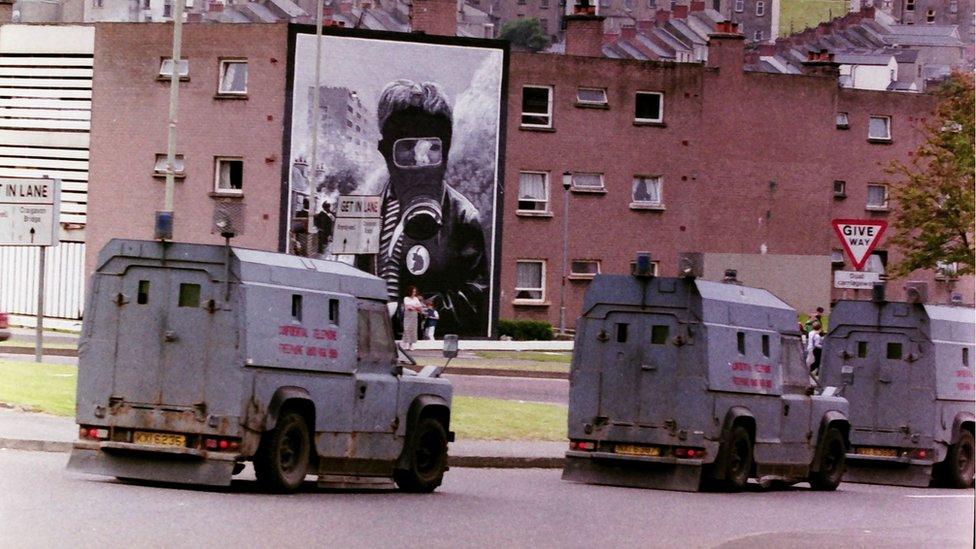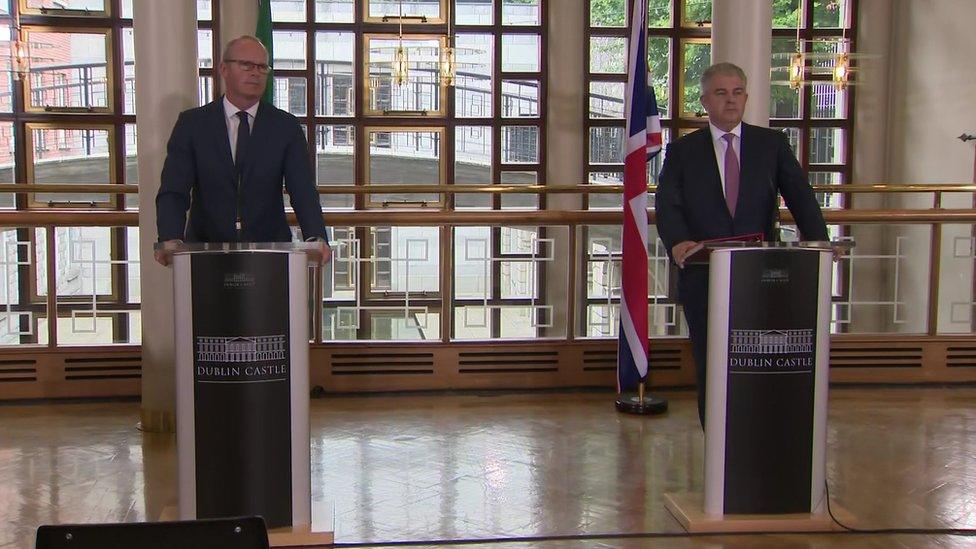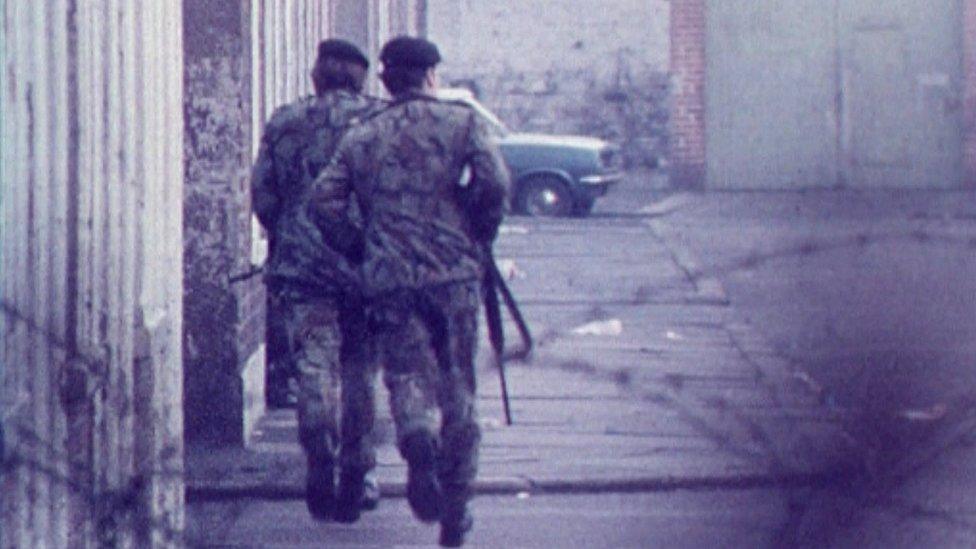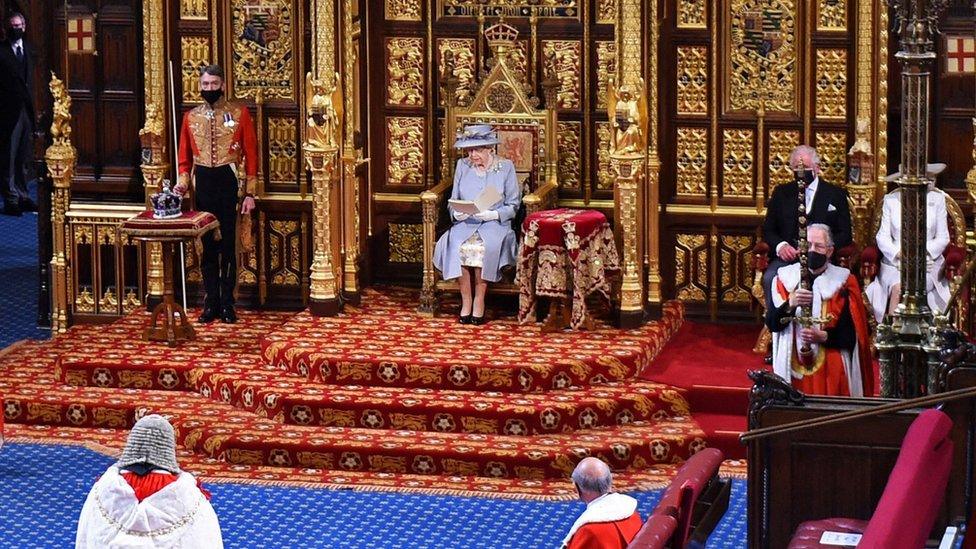Troubles legacy: Fresh talks to secure agreement on dealing with past
- Published

There is not yet a consensus on the best way to deal with outstanding offences committed during the Troubles
Details of "short and focused" multi-party talks on dealing with the legacy of the Troubles have been announced by the Northern Ireland Office (NIO).
The talks will aim "to find an agreed way forward" which will lead to legislation being introduced by the end of autumn, an NIO statement said.
Working groups with the main political parties and UK and Irish governments "will begin meeting immediately".
There will also be input from victims and survivors of the Troubles.
Independent "facilitators" could also be appointed.
The statement, published on the NIO website, added: "The participants will also hold meetings on an inclusive basis including to ensure that the interests and perspectives of victims and survivors, and all those most directly affected by the Troubles, are central to the discussions."
London and Dublin announced there would be "intensive engagement" on legacy following a meeting of the British-Irish Intergovernmental Conference last week.
Allow X content?
This article contains content provided by X. We ask for your permission before anything is loaded, as they may be using cookies and other technologies. You may want to read X’s cookie policy, external and privacy policy, external before accepting. To view this content choose ‘accept and continue’.

Last month it emerged the UK government was considering a statute of limitations which would ban all prosecutions for Troubles-era offences.
It could also halt cases currently before the courts.
The idea is seen as following through on a pledge to protect military veterans, but it would also apply across the board and include former paramilitaries.
There was widespread objection to the proposal when it was leaked to the media.
The Irish government, as well as Sinn Féin and the Social Democratic and Labour Party (SDLP) remain fully supportive of the 2014 Stormont House Agreement legacy plan which was never implemented.
Sinn Féin vice-president Michelle O'Neill said: "We note the proposal for talks on legacy but fresh negotiations are not necessary. What is necessary is the implementation of the legacy mechanisms agreed in the Stormont House Agreement.
"The British and Irish governments were parties to that agreement and have a responsibility to ensure its implementation in order to meet the needs of victims.
"Instead of the British government looking for new ways to continue to deny access to truth to grieving families they should be implementing what they have already agreed to at Stormont House in a human rights-compliant manner.
"The Irish government, a co-signatory to that agreement needs to be pressing the British government, as we will continue to do, to ensure its full implementation."
Central to Stormont House is a new investigations unit which would examine unresolved cases.
The UK government had pledged in the New Decade New Approach deal to legislate for Stormont House within 100 days, but did not do so.
Instead it has changed approach.
In Tuesday's statement, the NIO said the talks would aim to establish "an agreed collective way forward" which supported information recovery and reconciliation.
In a post on social media, the Irish Foreign Minister Simon Coveney said the two governments had written to parties to begin the new initiative.
He said victims' voices would be at the heart of the process.
Related topics
- Published25 June 2021

- Published24 June 2021

- Published26 April 2021

- Published11 May 2021
